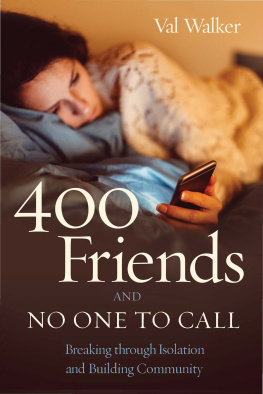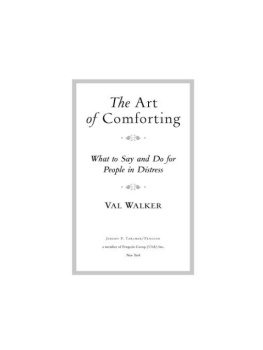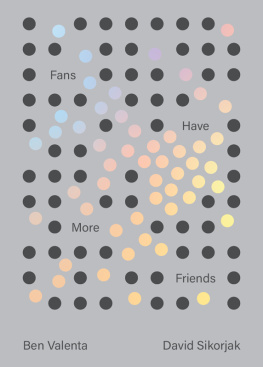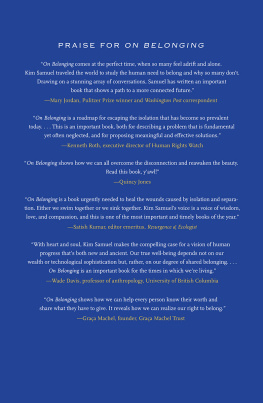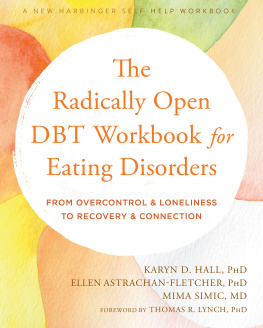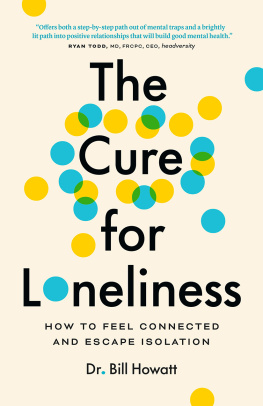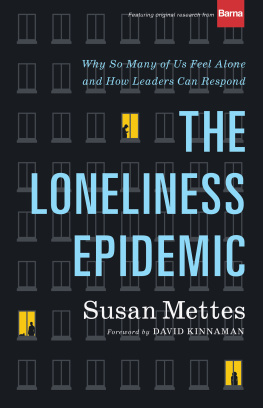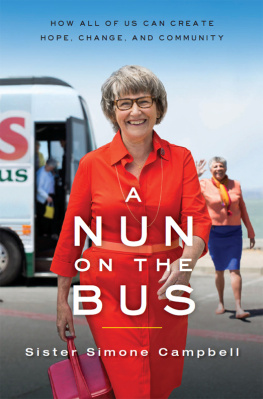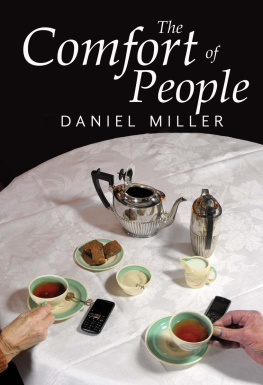Table of Contents
Page List
Guide
SPECIAL PRAISE FOR
400 Friends and No One to Call
This book is a marvel! Without any pomposity, this is a compendium of real life stories and useful tips about solving the universal problem of loneliness. Val Walker is able to walk a fine line that never veers into clinical distance or cloying sweetness. Instead she simply tells her own and her friends stories with very helpful editorializing along the way. I plan to recommend this book widely!
Jacqueline Olds, MD, coauthor, The Lonely American, Associate Professor of Psychiatry, Harvard Medical School and Psychiatrist at Massachusetts General Hospital
With honesty, compassion, and practical wisdom, 400 Friends and No One to Call grapples with a critical and timely issue. At the Health Story Collaborative, were thrilled to have Val Walkers knowledge and guidance for breaking through social isolation.
Annie Brewster, MD, Massachusetts General Hospital, founder of the Health Story Collaborative and cofounder of The Opioid Project
Perhaps now more than ever, the experience of loneliness and isolation is almost universal. In 400 Friends and No One to Call, Val Walker brings a collection of diverse voices together to teach us how we can break past that isolation and build communities that support us and help us find our way. Her clear, empathetic, and compassionate voice carries the reader through the forces that isolate us and gives us tools needed to move to a new sense of belonging.
Allie Cashel, president and cofounder of The Suffering the Silence Community, Inc., and the author of Suffering the Silence: Chronic Lyme Disease in an Age of Denial
Human beings are deeply social animals who need each other for healing, comforting, and connection. In this vitally important book, Val Walker has given us an informative and heartfelt examination of a world that encourages the kind of isolation that will kill us if we allow it. Walker shows us the way out of the pain of isolation, offering wonderful insights about building connections and relationships that will sustain us when we need love, comforting, and healing. This book is a remarkable achievement and should be a must-read for all of us on this deeply challenging human journey.
Scott T. Allison, PhD, author of Heroes and Heroic Transformation, Professor of Psychology, University of Richmond, editor of Heroism Science
Val Walker has written an important book about a paradox of our time: We have friends all over the place, and yet no one to turn to in rough timesa paradox with serious ethical and social implications. Insight and hands-on advice are needed. For those who care, Ms. Walkers book is a must-read.
Claus Jarlov, CEO, communications consultant, founder of Global Denmark, Copenhagen, Denmark
The work I do in fighting the stigma and isolation of addiction is all about the power of community. We hurt as one and we must heal as one. 400 Friends shows us how.
Paul E. Kandarian, actor/writer, longtime contributor to the Boston Globe and Rhode Island Monthly
400 Friends AND No One to Call
Central Recovery Press (CRP) is committed to publishing exceptional materials addressing addiction treatment, recovery, and behavioral healthcare topics.
For more information, visit www.centralrecoverypress.com.
2020 by Val Walker.
All rights reserved. Published 2020. Printed in the United States of America.
No part of this publication may be reproduced, stored in a retrieval system, or transmitted in any form or by any means, electronic, mechanical, photocopying, recording, or otherwise, without the written permission of the publisher.
Publisher: Central Recovery Press
3321 N. Buffalo Drive
Las Vegas, NV 89129
25 24 23 22 21 201 2 3 4 5
Library of Congress Cataloging-in-Publication Data
Names: Walker, Val, author.
Title: 400 friends and no one to call : breaking through isolation and building community / Val Walker.
Other titles: Four hundred friends and no one to call
Description: Las Vegas, NV : Central Recovery Press, 2020. | Includes bibliographical references.
Identifiers: LCCN 2019040437 (print) | LCCN 2019040438 (ebook) | ISBN 9781949481242 (paperback) | ISBN 9781949481259 (epub)
Subjects: LCSH: Social isolation. | Loneliness. | Social networks.
Classification: LCC HM1131 .W35 2020 (print) | LCC HM1131 (ebook) | DDC 302.5/45--dc23
LC record available at https://lccn.loc.gov/2019040437
LC ebook record available at https://lccn.loc.gov/2019040438
Photo of Val Walker by Barbara Olson.
Every attempt has been made to contact copyright holders. If copyright holders have not been properly acknowledged please contact us. Central Recovery Press will be happy to rectify the omission in future printings of this book.
Publishers Note
This book contains general information about loneliness and social isolation, as well as the stigma of isolation and the shame people feel about lacking social support. Guidance for building community and friendship is offered, supported by social science research and related matters. The information contained herein is not medical advice. This book is not an alternative to medical advice from your doctor or other professional healthcare provider.
Our books represent the experiences and opinions of their authors only. Every effort has been made to ensure that events, institutions, and statistics presented in our books as facts are accurate and up-to-date. To protect their privacy, the names of some of the people, places, and institutions in this book may have been changed.
Cover design and interior by Marisa Jackson.
This book is dedicated to what makes us brave enough to break through isolation and reach out again.
Table of Contents
Introduction
Once I Loved Being a Loner
It may seem strange that I would begin a book about healing from isolation by singing the praises of solitude. Long before I started writing this book, I once lived a cloistered, quiet life near a sanctuary of blue herons on the coast of Maine.
In 2000, at the end of a divorce, grieving that I was childless due to premature ovarian failure as the doctors called it, I moved to Maine with my cat to start my life all over again. I yearned to find my own inner voice after forty years of following the voices of others and craved the wilderness of the coast. I had fallen in love with the popular book Women Who Run with the Wolves, and indeed, I, too, was going to restore my soul by healing in the wild.
Four decades of people-pleasing and fake extroversion had overshadowed my introverted, highly sensitive nature to the point I could no longer recognize my own thoughts. Back in the 1960s in Virginia, wallflowers like me were raised to be effusive and gracious, no matter what, even if we looked utterly awkward at it. But, despite my lack of poise, my abundance of empathy, soft heartedness, and idealism attracted lost souls who begged me to believe in their potentialand pulled me down to hell to save them. Miserable with myself for repeatedly being deceived and betrayed, I reached out to therapists in the 1980s who unfortunately knew little about the abusive tactics of narcissists or sociopaths. I was told that assertiveness, boundaries, and learning how to say no were all I needed to protect myself. Worn down from the constant violation of my boundaries, I blamed myself for failing at assertiveness and deemed I was too weak to stand up to bullies, both at home and at work.

